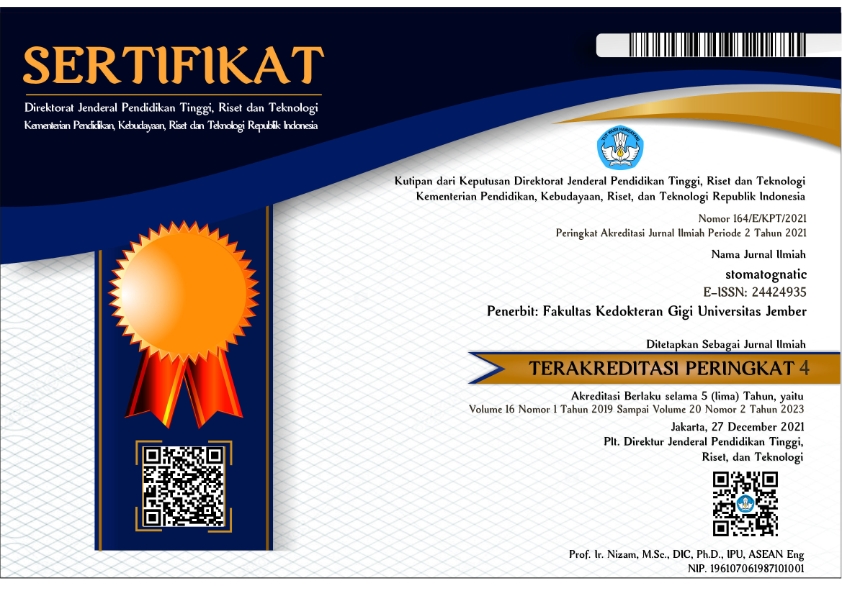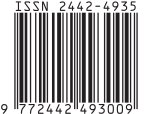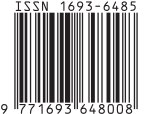Efek Konsumsi Stevia pada pH Saliva Kelompok Dewasa Muda: Tinjauan Literatur
DOI:
https://doi.org/10.19184/stoma.v21i2.50938Keywords:
Salivary pH, Stevia, SweetenersAbstract
The sugar intake in daily diet can lower saliva pH, potentially leading to dental caries, particularly among young adults due to frequent consumption of sweeteners in food and beverages. The application of non-nutritive sweeteners as sugar substitutes is becoming a consideration because they provide a sweet taste similar to sugar but have a non-cariogenic effect. Stevia leaves as a non-nutritive sweetener plant, are increasingly favored because they exhibit anti-cariogenic effects. In vivo study results indicate that stevia leaves can increase saliva pH. This study aims to investigate the impact of stevia consumption on saliva pH among young adults. This study employs a literature review methodology using secondary data from accredited national and international journal sources accessed through Google Scholar, NCBI, and Pubmed from 2010 to 2021. The keywords used were “Stevia + saliva pH†AND “enhanceâ€, “sweeteners†AND OR “sugar substituteâ€, resulting in five relevant journals meeting the criteria to be analyzed. The findings indicate an increase in saliva pH after rinsing with stevia leaf solution. In vitro studies suggest that stevia leaves containing ethanol and methanol reduce the formation of gram-negative and gram-positive bacteria. Stevia leaves contain Stevioside, Rebaudioside A, Riboflavin, and Tannin, which act as antibacterial, inhibiting plaque growth and enhancing buffer capacity, thereby increasing saliva pH. In conclusion, this study confirms that stevia leaves are a natural non-nutritive sweetener that has a high impact on increasing salivary pH among young adults.







